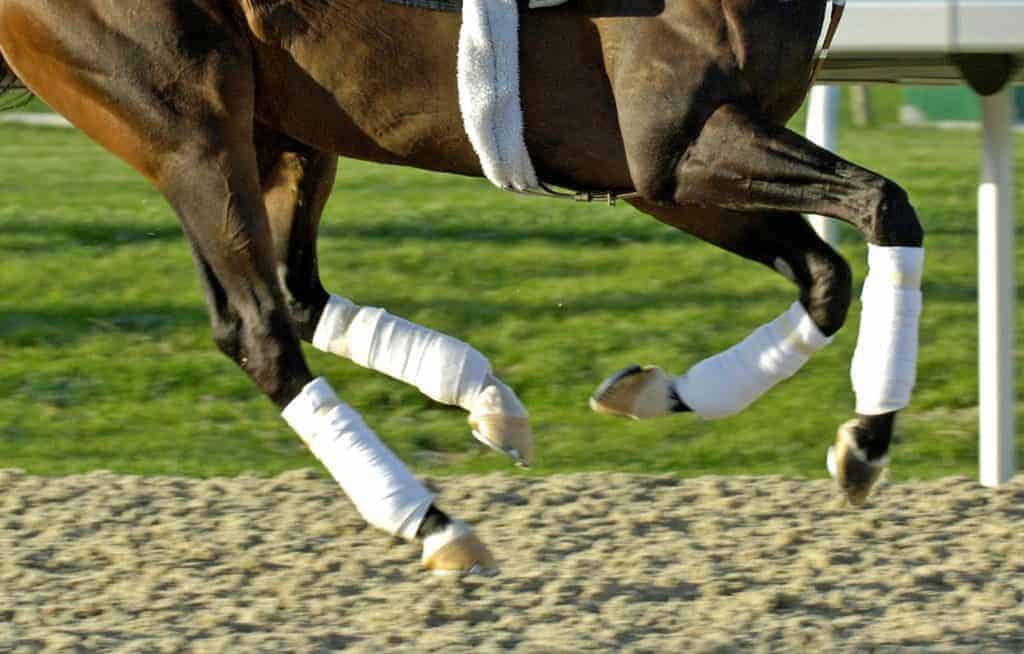
2019 Preakness Stakes: War Of Will Wins With Ease
War of Will, who finished eighth in the Kentucky Derby, rebounded with a victory in the 2019 Preakness Stakes.

War of Will, who finished eighth in the Kentucky Derby, rebounded with a victory in the 2019 Preakness Stakes.

In a sport where races are won and lost by fractions of a second, subtle problems can have a significant impact on performance. Here’s what veterinarians look for when racehorses aren’t performing at their best.

For the first time in Kentucky Derby history, a winner was demoted for an infraction committed during the running of the race. Stewards disqualified front-runner Maximum Security for causing interference and awarded 65-1 longshot Country House victory.

Track ponies, or pony horses, play important roles both on training and race days.

A variety of initiatives on racing surfaces, race-day scrutiny, and more are in place at all three NYRA tracks—Aqueduct Racetrack, Belmont Park, and Saratoga Race Course.

Drs. Mick Peterson and Wayne McIlwraith weigh in on what we’ve learned about racing surface safety, issues currently at hand, and what the future could bring.

The ground jury and veterinary delegate accepted 41 horses during the first horse inspection for the 2019 Land Rover Kentucky Three-Day Event. Here are some sights from the jog lane.

Initiatives include building an equine medical center and quarantine facility on the Louisville, Kentucky, racetrack’s backside, hiring an equine medical director, and more.

Beginning Jan. 1, 2020, 2-year-olds would be prohibited from receiving furosemide within 24 hours of a race at coalition tracks. Beginning in 2021, the same prohibition would extend to all horses participating in any stakes race.

Corrine Sweeney, DVM, is one of the authors of the American College of Veterinary Internal Medicine’s 2014 consensus statement on exercise-induced pulmonary hemorrhage in horses.

Recommendations include avoiding using bisphosphonates in manners inconsistent with indications of use on the label and discontinuing bisphosphonates use in any horses in training regardless of age, having every jurisdiction employ a full-time equine medical director, and more.

Dr. Angela Pelzel-McCluskey explains why certain populations, such as racing Quarter Horses, might have a higher risk for contracting equine infectious anemia.

Bisphosphonates are FDA-approved for controlling clinical signs associated with navicular syndrome in horses ages 4 and older. Some veterinarians use them off-label to treat other equine bone issues. But could this off-label use be detrimental? One equine veterinarian recently gave a rundown on what research says.

Complete veterinary-record transparency, strict limitations on pain-relieving and/or anti-inflammatory medication/treatment, and banning therapeutic medications or treatments without a qualified veterinary diagnosis from a state-licensed veterinarian are among the agreed-upon initiatives.

Learn about the current challenges of medication regulation and drug testing in the race and sport horse industries.

Finding the cause of 21 equine fatalities at Santa Anita Park, in Arcadia, California, is key to the future of not only the venue but also the horse racing industry in general, says a Kentucky-based scientist investigating the incidents.
Stay on top of the most recent Horse Health news with
"*" indicates required fields